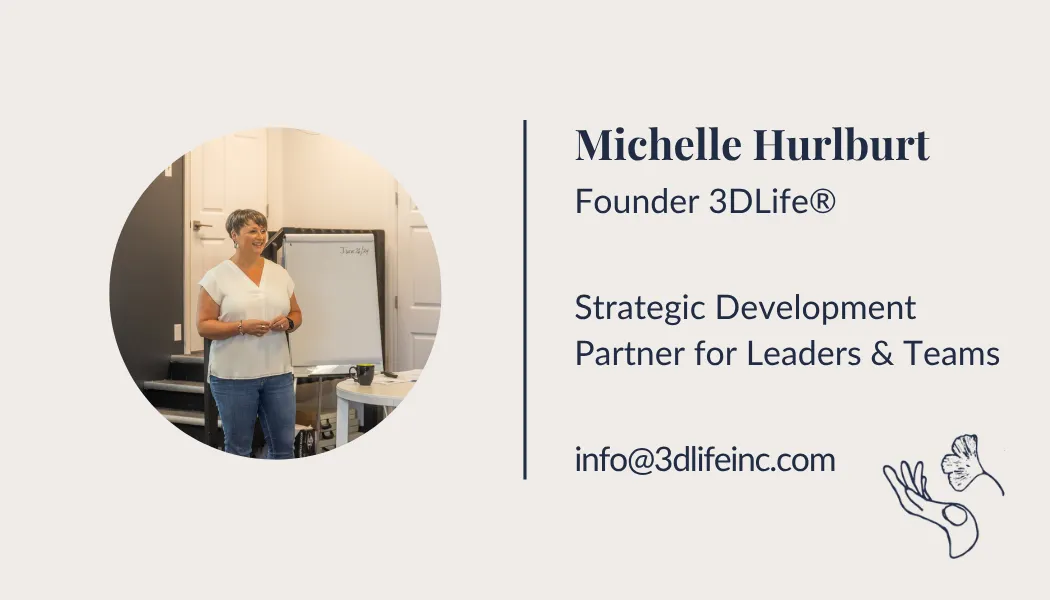Can You Have Too Much Empathy as a Leader? (Yes — And Here’s What to Do About It)
Empathy is essential in leadership - but can you have too much? Discover the risks of over-empathizing, how it affects decision-making and energy, and how to strike a healthy balance for stronger leadership and team culture.

A Must-Have Skill
Empathy is a must-have leadership skill - one that gets talked about a lot, but still isn’t fully understood. Some leaders write it off as too “soft.” Others struggle with boundaries and end up shouldering the emotional weight of everyone around them.
If you’ve ever wondered whether it’s possible to have too much empathy, you’re not alone. And the answer? It’s yes.
But it’s not about turning the empathy off - it’s about learning how to regulate and right-size your empathy to match the moment, so you stay connected, compassionate, and effective.
Let’s dig into why this matters and how you can find your empathy sweet spot as a Rooted and Rising Leader™.
Why Empathy Still Gets a Bad Rap in Leadership
Despite decades of research showing that empathy improves productivity, engagement, and retention, some leaders still view it as a “nice-to-have” instead of a performance essential.
But when empathy is part of your leadership toolkit:
- People work harder (because they feel seen and respected),
- They stay longer (because trust and belonging are present), and
- They feel more fulfilled (because the work aligns with a shared sense of purpose).
That’s a win for people and for performance.
But Can You Overdo Empathy?
Yes - and it can be exhausting.
Empathy lives on an intensity scale. And when you’re too far toward the “over-empathizing” end, it can lead to:
- Emotional burnout
- Role confusion (you become the fixer, not the leader)
- Poor boundaries
- Decision paralysis
- Resentment
I’ve lived this firsthand. I used to absorb people’s pain - friends, colleagues, even strangers in news stories. My body felt it. My energy dropped to match theirs. I’d lie awake at night trying to figure out how to help.
I felt like I was actively caring, but it wasn’t sustainable - or helpful.
Empathy Without Boundaries Isn’t Leadership. It’s Rescue Mode.
Rooted leaders don’t rescue. They hold space.
The difference?
Rescue says: “Let me fix this for you.”
Rooted empathy says: “I see you. I care. And I believe in your ability to navigate this. I’m here to support you - not to carry it all for you.”
This shift matters. Especially when emotions are high and tensions rise.
Finding the Sweet Spot: The Empathy Spectrum
Think of empathy as a sliding scale. At one end, cold detachment. At the other, emotional enmeshment.
You want to aim for the middle.
That grounded, human-centered space where empathy and leadership coexist. It’s not a fixed spot - think of it as a sliding scale. Some situations will pull you more one way than the other.
But ideally, you're operating in a zone where you can:
- Acknowledge what others are feeling
- Stay present and supportive without losing yourself in their experience
- Keep your team’s goals, mission, and healthy boundaries in clear view
- Lead with both heart and direction - not one at the expense of the other
This is where sustainable, effective leadership lives.
I once found myself caught between a highly emotional boss and equally emotional coworkers. It would’ve been easy to lose myself in either side. But I stayed grounded, empathized with both, and became a calm negotiator - someone who could find a path forward because I hadn’t absorbed the emotion, just understood it.
That’s Rooted Leadership.
Empathy AND Accountability Can Coexist
Contrary to outdated beliefs, empathy doesn’t mean people get a “free pass.” You can:
- Check in and show concern
- Make space for humanity
- Be flexible when needed
AND
- Hold expectations
- Address performance issues
- Keep things moving forward
Empathy makes accountability easier, not harder - because trust is already built.
Reflection Prompts: How Rooted Is Your Empathy?
Here are a few self-reflection prompts to help you calibrate:
- Do I feel responsible for others’ emotions or outcomes?
- Do I take on more than I can (or should) manage?
- When someone on my team is struggling, do I lose myself in their story - or do I stay grounded?
- How do I balance compassion and clarity in hard conversations?
- What helps me reset when empathy turns into emotional fatigue?
Final Word: Leadership Needs More Humanity - Not Less
Empathy is not a threat to performance. It’s a pathway to it.
Rooted and Rising Leaders™ know how to lead with heart and hold steady in the storm. They show up as fully human - and invite others to do the same. They don’t get stuck in emotions, but they don’t ignore them either.
Empathy isn’t weakness.
It’s wisdom.
And as leaders, it’s time we treated it as such.
Until next time,

